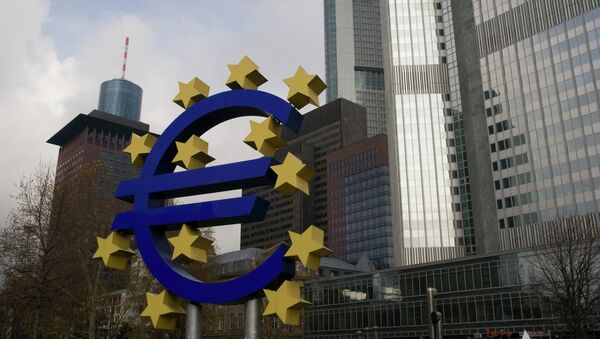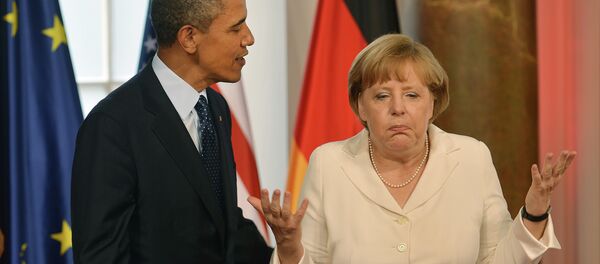Kristian Rouz — The single currency area's economy is showing signs of weakness amid accelerating inflation, stirring investor concern of possible stagflation in the Eurozone. The common currency is under pressure as well, as prospects for a US trade deal are still unclear, while the probability of a "hard Brexit" is weighing on business confidence as well.
According to a new report from Eurostat, core Eurozone inflation rose 1.2 percent year-on-year in January, after a 1.1 percent rise the previous month. However, monthly inflation dropped 1.2 percent — this, excluding such volatile categories of goods as food and energy, suggesting that European consumers are feeling the pressure of the slowing economy.
READ MORE: European Central Bank Signals No Rate Hikes as Eurozone Faces Slowdown
The Eurostat report found that price growth in the services sector contributed the most to the accelerating inflation, while alcohol and tobacco also drove the gains in consumer prices.
PMI readings below 50 indicate contraction.
Eurozone manufacturing PMI stood at 50.5 in January, pointing to a weak expansion that month, but momentum appears to have faded away in the bloc's industrial sector. European exporters have previously voiced concern over a weakening demand for their products from overseas.
Meanwhile, recent speculation of the US possibly slapping steep tariffs on European cars has sent shockwaves across the bloc's auto-makers and related industries as well.
Forward-looking projections are hardly optimistic as well, as many economists aren't expecting a positive change in the near-term.
READ MORE: ECB Begins Board Reshuffle Amid Worrying Slow Growth Forecasts — Scholars
"The weakness is being led by manufacturing, which has now entered its first downturn since mid 2013", Chris Williamson of IHS Markit said. "With factory order books deteriorating at an increased rate, the rate of contraction in the goods producing sector will likely worsen in coming months".
Economists say that the Eurozone's GDP will hardly reach 0.1-percent quarter-on-quarter expansion in 1Q19, however, due to the rife economic risks, and the European Central Bank's (ECB) gradual removal of its accommodative policies.
"The limited national breakdown showed improvements in both Germany and France", Jack Allen of Capital Economics said. "All is not well in the manufacturing sector".
However, some economists say that upcoming data for the Eurozone could provide a more upbeat outlook on the economy.
"For the ECB, which has been looking for clues about whether the slowdown was temporary or could be more severe, this week's data will add to a more optimistic view", Bert Colijn of the Dutch bank ING said. But the ECB will likely "avoid further tightening", he added.
READ MORE: A Cliff's Edge: Eurozone Recession Looms as German Industrial Output Slips 1.9%
The ECB said that it is now preparing a new targeted stimulus, which will provide affordable loans to the euro area's commercial banks. Policymakers expect the measure to support lending and business and consumer activity in the Eurozone in the coming months, but a longer-term outlook remains uncertain.
Last year, the ECB was discussing the possibility of raising interest rates in 2019, but such plans appear to be off the table now, due to the rising threat of a new European recession.




